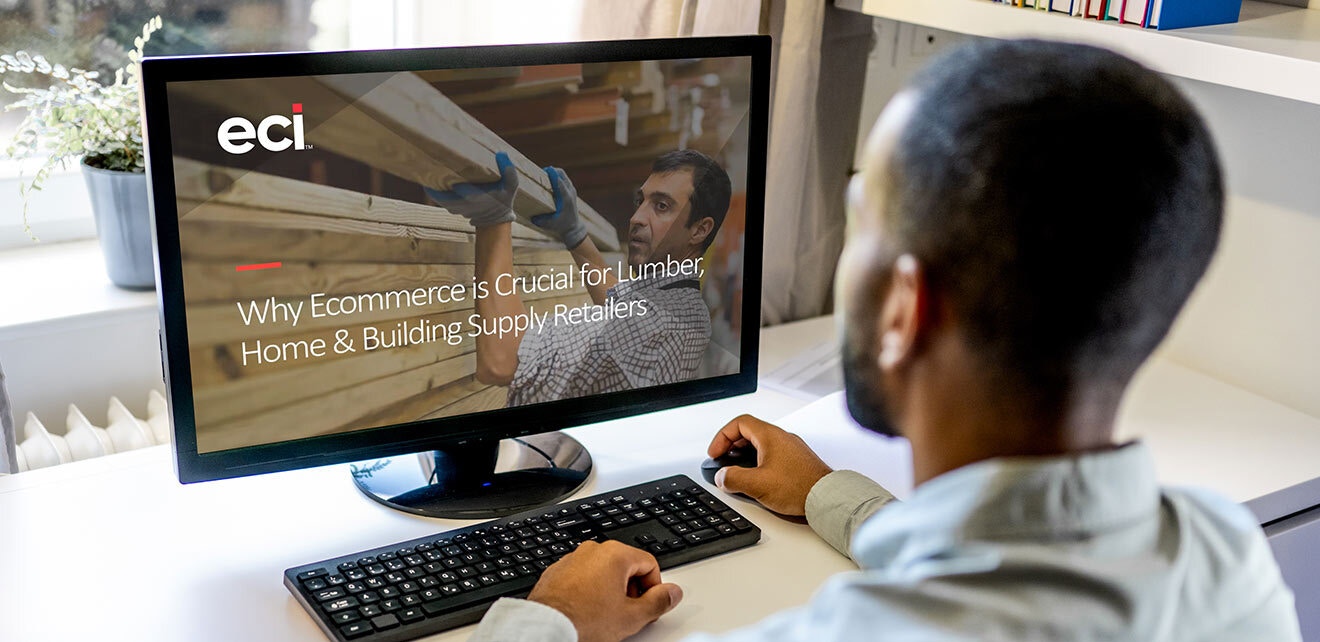Home > Blog
Read Time — 4 minutes
Why ecommerce is Crucial for Builders Merchants in 2023

Here’s a sneak peek of the key takeaways from part two of this three-part series.
For independent timber and building material merchants, 2023 is the year to commit to a long-term ecommerce management strategy. This year, the value of the global construction materials market will reach $1 trillion, and by 2024, 22% of industry sales will be online, a figure that projects to continue rising.
Here’s a sneak peek at five insights you’ll learn from our second master class that will immediately accelerate your ecommerce management planning.
Why do 84% of building material merchants predict they’ll sell online only in the future?
Even if you think your business is too small and local; even if your customers have always had to touch the product before purchasing; even if you’ve been convinced your business model isn’t made for ecommerce and you could never turn a profit with online sales, the time has come to develop a serious ecommerce strategy.
Today, 81% of our customers research online before buying and 55% of transactions occur during store hours. Convenience is relevance. Convenience builds loyalty.
Your future customers are Millennials and Gen Y – and that has huge online implications.
Today, Gen Xers and Baby Boomers represent a declining share of our business. While 56% of Gen Xers prefer to shop online versus a brick-and-mortar physical location, 67% of millennials prefer to shop online. LBM construction and contracting partners and clients are a step ahead; 89% say digitalisation is changing the way they work, and 70% say those who do not adopt digital ways of working will go out of business. The truth is, with ecommerce, we triple our sales windows and provide a virtual branch for our contractors, builders, and DIY customers to do their shopping 24/7 – with us instead of Amazon, corporate franchises, and national merchants.
Let’s talk about shopping motivations.
Your DIY customers want a wide choice of offerings, good price deals, comprehensive product information, and “how-to” tutorials. They also demand a click & collect option. Click & collect drives up average sales totals; 38% of merchants say the biggest boost comes from additional in-branch purchases when customers collect online orders.
Your homeowners want a range of products, help and advice, financing options, and the ability to see and buy everything in one place.
Your new wave of contractors and tradespeople want the ease of doing business, comprehensive product data, accurate pricing, and online customer service. And 80% of them regularly check product information on their smartphones, and seek pricing quotes, often after hours.
Customers are leaving merchants that don’t have an ecommerce solution that provides all the same experiences and expertise available in-branch. This includes exploring and learning about products, information on availability and pricing, order placing, delivery tracking, and access to invoices and account balances.
Your website needs these ecommerce features:
So, your merchant location is loved for your in-branch expertise. Jerry at the counter has decades of experience and knows everything about every available product. Maria specializes in beautiful home remodeling and product selection. Nick’s brain is a catalogue of millions of hardware parts. Your website should give your customers access to their expertise online, and it should seamlessly integrate with all your business data. It should offer product demonstrations, how-to videos, intelligent search with predictive features, and showcase preferred suppliers and popular related items.
Your ecommerce website should also offer a different experience for professionals who need access to productivity tool products priced by unit measures, extended catalogues for non-stock products, and product quantity calculators.
Learn how to make your website better than your competitors with an upgraded user experience (UX).
Should you hire an ecommerce website developer? How about going the co-op route?
Almost every builders merchant that develops a website on their own ends up with a pretty landing page. Despite not offering the needed functionality, these websites have high development and design costs, but poor business logic and programming. The project starts on the wrong track, and then ongoing costs for security, maintenance, and marketing make the strategy more regrettable.
Thinking about the co-op route? Though it’s much easier, you’ll give away revenue and profits, build a competitor’s franchise brand and lose control and competitive differentiation over your brand.
There is one viable route to your merchant ecommerce management digital transformation and you’ll learn all about it in our complete ecommerce Master Class Series presented by John Maiuri here. Share it with your team and use it as a launching pad for your 2023 ecommerce strategy sessions.
Learn more about integrating your business strategies, including ecommerce management, into a coherent company vision.

